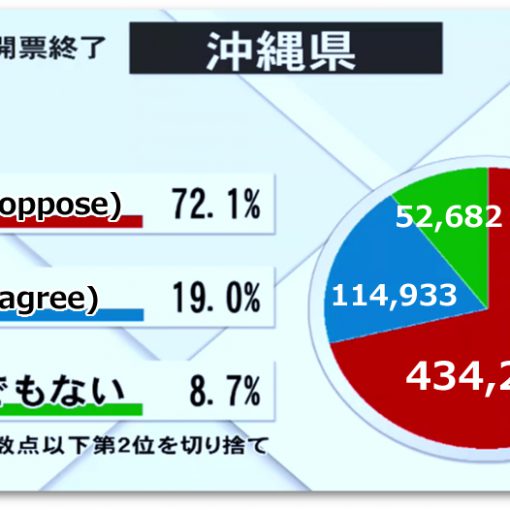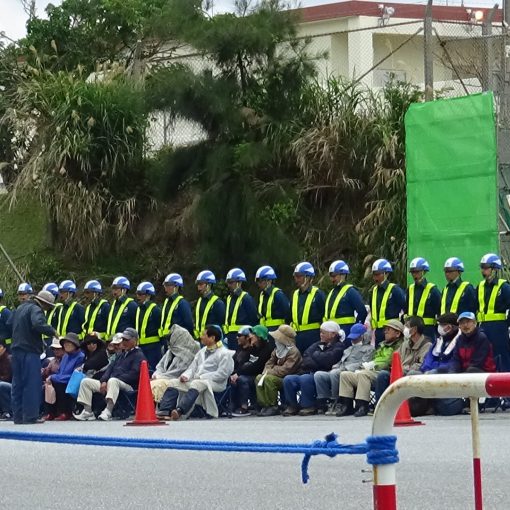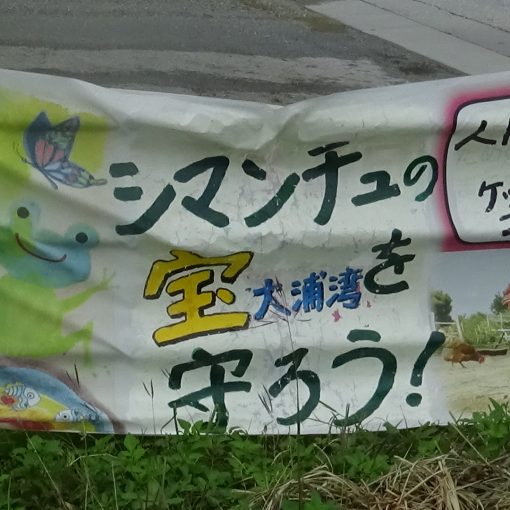January 25, 2021 Ryukyu Shimpo
A secret 2015 agreement reached between the Japan Ground Self-Defense Force (JGSDF) and the U.S. Marine Corps has come to light. The deal agrees to station the JGSDF’s remote island defense unit, the Amphibious Rapid Deployment Brigade (ARDB), at U.S. Camp Schwab in Henoko, Nago City. The matter was not decided on by the entire Ministry of Defense and is a significant issue that violates civilian control, a major principle underlying democracies in which politics prevail over military affairs.
The JGSDF and the U.S. Marine Corps’ top leaders in Okinawa had come to an agreement, coordinated, and presented a joint JGSDF-facility proposal to the parties concerned.
The deployment of the ARDB, also known as the Japanese Marines, is an obvious reinforcement of the base’s capabilities and will lead to the base’s permanent status. The move may also increase tensions with China and further its targeting of the Okinawan islands.
Such critical security decisions that impose heavy burdens on residents should not be made without informing the sovereign people and their representatives, the Diet. A secret military agreement is undoubtedly an outrageous act that deviates from civilian control and destroys the very foundations of a nation that made its fresh start as a pacifist country.
About 9,000 U.S. Marines in Okinawa are expected to be relocated to Guam and other places abroad this decade. Relocating the Marines is professed to be a policy measure to reduce the military burden for Okinawa; if the ARDB is to replace the Marines, the move would be pointless.
The ARDB was deployed to Nagasaki Prefecture in 2018. There are currently two regiments in Nagasaki, but the idea is to place a third in Kyushu in fiscal 2023 and move one of the regiments to Henoko in the future.
The de facto blending of the U.S. military and the Self-Defense Forces provides us with context. In January and February of last year, the ARDB participated for the first time in the Japan-U.S. joint exercises held at the U.S. Blue Beach Training Area in Kin and other areas around Okinawa. Another joint exercise is scheduled for later this month at Blue Beach. ARDB’s participation could be in preparation for its deployment to Okinawa.
What is more, the joint use of U.S. military facilities in Japan technically reduces the number of U.S. forces’ exclusive-use facilities of which about 70% are concentrated in Okinawa. The intention may be to lessen the military burden for Okinawa, but only on paper–a deceptive maneuver.
In any case, the Self-Defense Forces’ reinforced presence in the Nansei Islands poses its own burden on Okinawa. As of 2018, the total area occupied by JSDF in Okinawa was 4.3 times more than that of the year Okinawa was returned to Japan. This number will increase further if the JSDF deploys to other areas, including the Sakishima Islands.
The Japanese government’s declaration to reduce Okinawa’s military burden is nothing more than a pipe dream. Despite the fact that 70% of voters opposed the land reclamation work at Henoko in a prefectural referendum, and although starting construction work on the soft seabed at Oura Bay seems improbable, the government is forcibly advancing the construction of a new military base at Camp Schwab.
The new Henoko base is expected to become a JGSDF base in the future, according to a JGSDF official. It is unacceptable that Okinawa should pay the price, as it did during WWII, because of an agreement that deviates from civilian control. We must not forget that the tragic Battle of Okinawa resulted from the Showa era history of allowing the military to run amok. Seventy-six years later, we refuse to shoulder the excessive military base burden and have our lives placed in constant danger.
(English translation by T&CT and Monica Shingaki)





